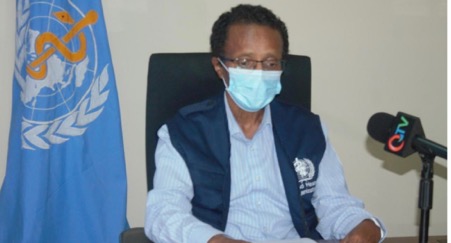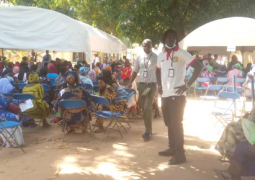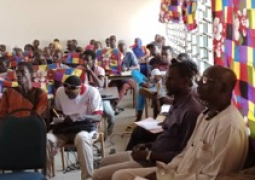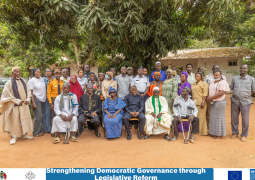
Dr Desta Tiruneh, WHO Country Representative to The Gambia in his remarks highlighted the achievements of WHO since its inception, saying the 75 years anniversary of WHOis an opportunity for them to stop and reflect on the remarkable achievements in advancing the health and wellbeing of the people of The Gambia and Africa.
“I am proud to tell you how WHO has impacted the lives of Gambians over the past several decades. Over the years, WHO has worked tirelessly with the Gambian government to improve the prevention, diagnosis, and treatment of malaria. Thanks to the concerted efforts of WHO and partners such as Global Fund, we have seen a marked reduction in malaria cases and inpatient malaria deaths across the country, which is a significant milestone. WHO is pleased to have contributed towards the significant reduction in the maternal mortality ratio, the infant mortality rate, and the transmission of HIV/AIDS, tuberculosis, neglected tropical diseases, and other communicable diseases. The national response has been strengthened in terms of emergencies, including outbreaks, emerging diseases, and other emergencies in addition. It is with great pride that I also inform you that The Gambia has been certified by WHO for having eliminated trachoma as a public health problem, making it the second country in the WHO African Region to achieve this milestone,” he stated.
He further stated “with WHO's support, The Gambia has been a shining example in the successful implementation of tobacco control measures. Between 2013 and 2017, we supported the Government of Gambia to implement new tax policies on tobacco thatled to increased revenue for the country and decrease in import and usage of tobacco products across The Gambia. This remarkable achievement showcases the commitment and dedication of the government of Gambia and all stakeholders involved,” said Dr Desta.
He added that WHO has also made significant strides in the African continent. “One of our most notable achievements in Africa has been the successful effort to eliminate wild poliovirus from the continent. After years of coordinated efforts, Africa was declared polio-free in 2020. WHO teams played a critical role in responding to health emergencies, including the Ebola outbreak in West Africa and the COVID-19 pandemic. Through our work in the African region, we have helped improve health outcomes for millions of people and continue to work towards building a healthier future for the continent.”
In 1948, countries of the world came together and founded WHO to promote health, keep the world safe and serve the vulnerable. Since then they have been working with 194 Member States across six WHO regions and on the ground in more than 150 offices. WHO envisions a world where health for all is realised.




